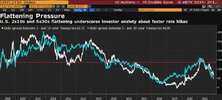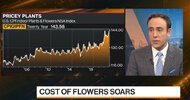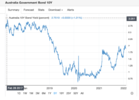- Joined
- 3 July 2009
- Posts
- 28,647
- Reactions
- 26,283
Someone knows something.

 au.news.yahoo.com
au.news.yahoo.com
Australia central bank to scrap QE on Feb. 1, wait with rate hikes till November: Reuters poll
Australia's central bank will end to its bond-buying programme on Tuesday, but is expected to wait till this November before it responds to higher inflation with its first interest rate rise in over a decade, a Reuters poll showed. While Governor Philip Lowe was suggesting as recently as last...




